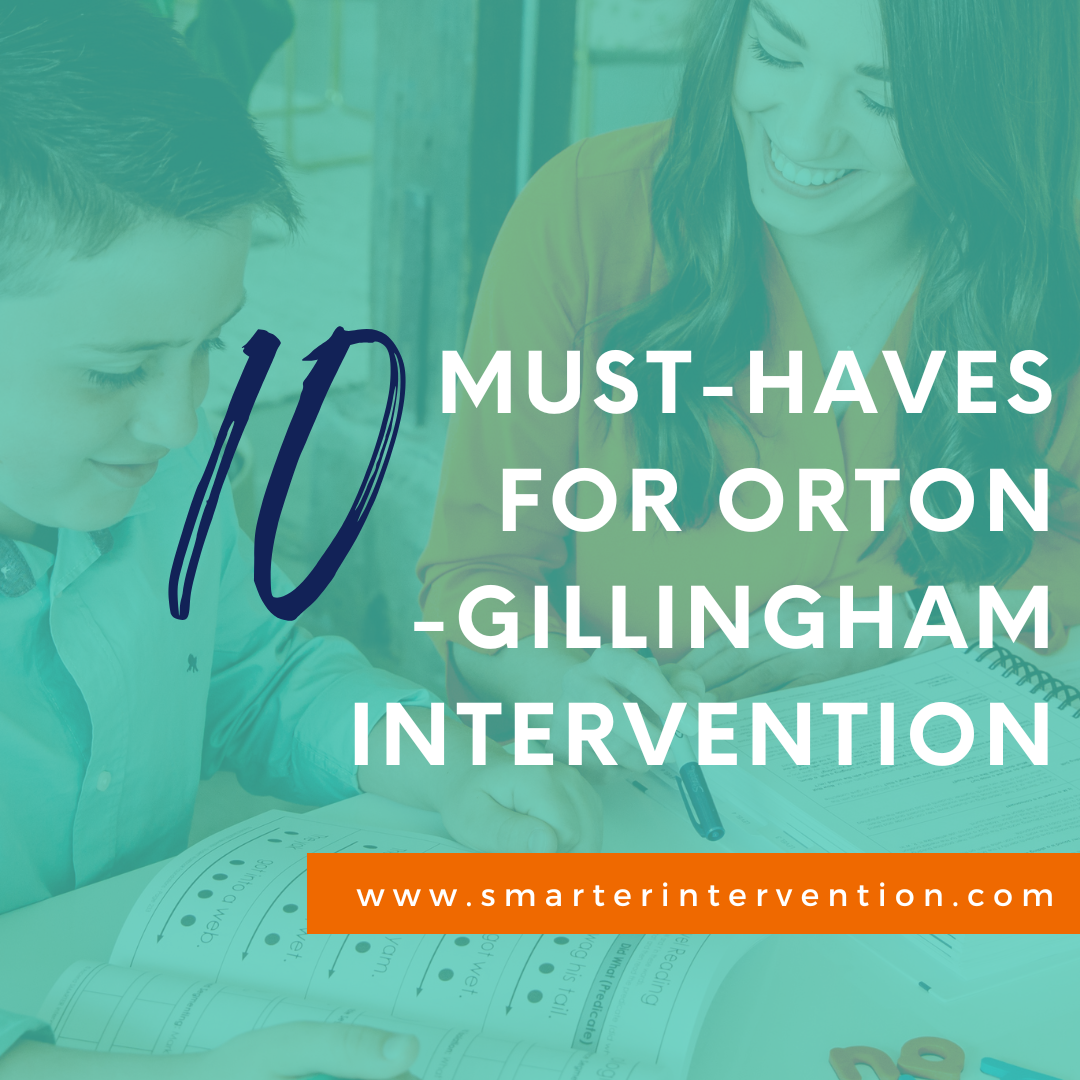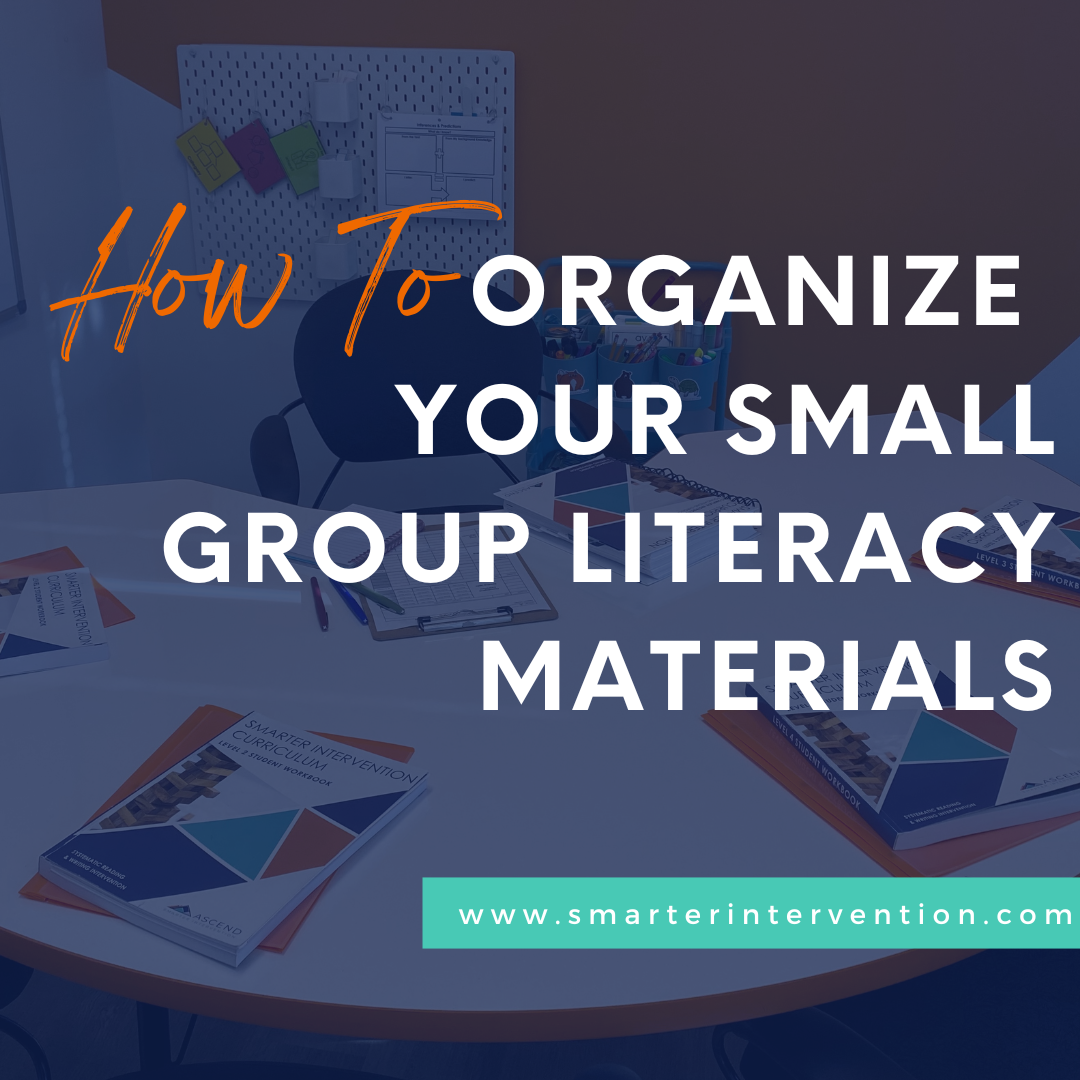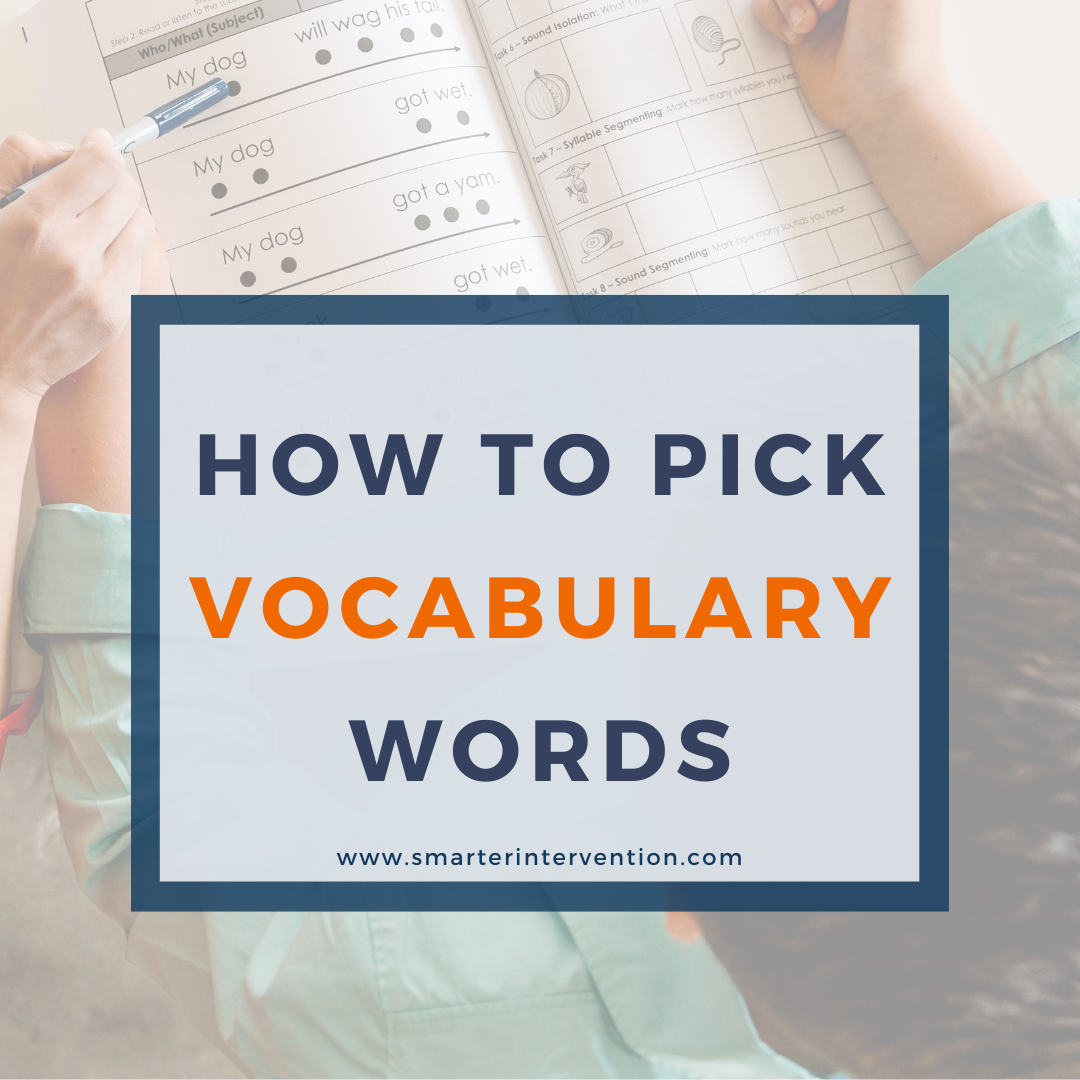Science-based literacy resources and articles
for families, educators and schools
Search by Category:
Categories
- Advocacy
- Authentic Literature
- Business
- Comprehension
- Data Tracking
- Differentiation
- Dyslexia
- Evaluation and Assessment
- Executive Functioning
- Games & Activities
- Helping My Child At Home
- How To
- IEP/504 Plan
- Lesson Planning
- Math
- Online Intervention
- Organization
- Parents
- Phonics
- Phonological Awareness
- Reading Comprehension
- Reading Fluency
- Research
- SLP
- Spelling
- Vocabulary
- Writing
How to Make Extra Money as a Teacher This Summer
As the summer rolls near you may be thinking about ways to earn some extra money. The great news - you have an incredible skill set that is extremely valuable. Keep reading to learn more about how you can use your skill set to make extra money this summer!
How to Develop Early Literacy Skills Through Read Alouds
Is there anything better than a great read-aloud when developing early literacy skills?
We think not!
One of the questions we get often is, “How do I align my read-aloud with the Science of Reading?”
Keep reading to learn more!
How To Use Your Students’ Interests to Improve Their Literacy Skills
Raise your hand if you've ever been told that your literacy instruction is boring. 🙋♀️ If you're raising your hand - you're definitely not alone.
It can be difficult to teach these skills to students in a way that feels engaging and exciting because let's face it - the skills that we have to teach aren't very exciting. Luckily, there is a solution.
By putting lessons together in a way that focuses on students' interests, you can absolutely change the game in your literacy instruction. Keep reading to learn our step-by-step process for putting these lessons together.
How to Systematically Review Previously Learned Material
As students progress through reading instruction and learn harder skills, it is imperative that we review previously learned concepts with them too. Without systematic review, we risk students losing previously mastered skills. Read on to see how we systematically review with our students - these strategies have made a huge difference for us!
The Ultimate Teacher Gift Guide!
Hi friends,
It’s that time of year again! The time of year where people are looking to show appreciation to the teachers in their lives. Instead of yet another gift card, get them something they really need this year!
This blog breaks down our TOP TEN teacher gifts your child’s teachers or your colleagues are SURE to love.
10 Must Haves for Orton-Gillingham Intervention
So I don't know about all of you, but when I started out delivering OG intervention I was trying to figure what supplies and materials I absolutely needed for my classroom and small group intervention. I knew I would need writing materials, reading supplies, games, activities, word lists, the list went on and on. We’ve put together a list of Orton-Gillingham necessities to help make your life a little easier!
How to Use Authentic Text in Your Structured Literacy Lessons
Have you ever heard your students say - “…the reading we do with you isn’t real reading.”
You’ve taught them all the phonics patterns. You’ve worked through all of the fluency passages and PA drills. And yet, students aren’t generalizing their knowledge. They’re struggling to see the relevance of the work you’re doing.
We’ve definitely been there before too. Now, we are sharing how we use authentic texts in our structured literacy lessons to help make lessons feel more like “real” reading for students.
How to Organize Your Literacy Worksheets
Is there anything worse than combing through piles of worksheets to find the ONE you’re looking for?
As a part of our organizational series, this week we are sharing our process for keeping all of our worksheets & full-page activities organized! Keep reading to learn our top 3 tips for keeping worksheets organized!
How to Organize Your Literacy Task Cards
Have you ever found yourself rifling through a drawer full of task cards, looking for the set that you need, only to pull out torn pages and crumpled, incomplete sets? We get it - we’ve been there too! Keep reading to learn more about the system we use to keep all of our task cards, flashcards, and review games organized.
How to Organize Your Small Group Literacy Materials
Our goal for the year was to organize all of our materials and we’ve been making good progress! One of the spaces that has felt the most successful has been our small group tables. So, we thought we’d share our organizational system with you!
How to Organize Your Classroom Walls: Getting the Most Value Out of Your Visual Aids
All over Pinterest, Instagram, and TikTok - there are thousands of classrooms and reading intervention rooms that look like they are straight out of a magazine.
It’s easy to scroll through these pictures/videos and feel like your room needs to look like the inside of the Container Store. While there is something to be said about being in an organized space that brings you joy, our end goal is tying beauty with functionality.
In this blog, we’re sharing how you can optimize your wall space to support your students’ literacy development. Keep reading to learn more!
How to Organize Student Bins for Literacy Intervention
The process of organizing helps create the feeling of being in control (which is helpful since we work in a setting that often feels a bit chaotic!). In this blog, we’re sharing our process for keeping our students’ materials organized. We see students in an intervention setting but this same strategy could apply to the classroom as well! Keep reading to learn more.
How to Organize Your Lesson Materials
Who doesn’t love a good organizational overhaul? I mean Home Edit meets Pinterest meets education - yes, please!
We get TONS of questions not just about how we organize our lessons with our students but also about how we organize ALL THE THINGS. The literal things that we need to use to deliver our instruction. Well, friends, we’ve got you covered because today we’re talking all about how we organize the materials we use with our students so we can spend more time actually working with our students, than finding all the materials.
Let’s dive right in shall we?
How to Create Cohesive Literacy Lesson Plans
We spent years pulling resources from different programs and trying to piecemeal things together. Talk about a headache. It always felt like no matter how hard we tried, no matter how many different resources we collected, it wasn’t getting easier to target everything in our lessons.
That is until we finally figured out the secret to creating cohesive lesson plans.
Now - we want to share that secret with you! Keep reading to uncover the “not-so-secret” secret formula to creating cohesive literacy lesson plans.
Why are Math Word Problems So Difficult for Students?
Why are math word problems so difficult for so many of our students? That IS the question!
WORD PROBLEMS REQUIRE A NUMBER OF CRITICAL LITERACY AND EXECUTIVE FUNCTIONING SKILLS
(which we talk about often!)
So let’s start by thinking through all the skills students need in order to solve math problems effectively.
How to Teach Comprehension Explicitly
You can't teach comprehension explicitly.
...at least, that's what we were told when we started in this field.
After working with hundreds of students, we realized that comprehension can and should be taught explicitly.
...and that teaching it doesn't need to be as hard as we once believed. It just relies on us recognizing one important detail before we jump in. Click here to read more!
How to Pick Vocabulary Words for Your Literacy Lessons
Raise your hand if vocabulary instruction has ever scared you. (We immediately raise our hands).
How do you teach it? Which words are we supposed to use? We had these questions, too. That is until we cracked the code and figured out how to easily incorporate vocabulary instruction into our literacy lessons across grade-levels. Click through to read more!
How to Use 1 Reading Activity to Target 5 Literacy Skills
There are so many different factors that play into learning to read and write effectively. It can often feel overwhelming because it seems like we need to hit on all of these skills separately and hope that it all comes together! This isn’t the case. With just one activity, you can hit on multiple skills and help your students grow!



















